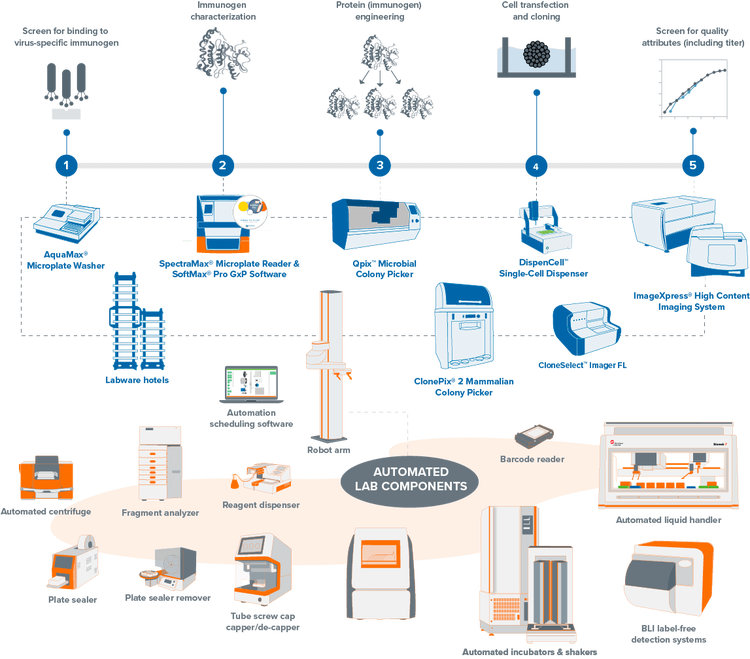Explore automation-ready systems for your clone screening workflow
Mammalian and microbial clone screening projects traditionally begin with a target—a receptor, protein, or gene that participates in a biological pathway of interest. Next comes screening, where thousands to millions of cells are tested and analyzed in relation to the target. This presents a significant bottleneck for labs as it requires laborious and time-consuming methods across a wide range of analytical platforms.
With Molecular Devices automated clone screening workflows, you can ease the burden on your lab by significantly reducing hands-on-time while creating a central repository for data pulled from multiple processes. Our automated solutions unify all of your laboratory devices to increase your throughput and efficiency while reducing human interaction.


